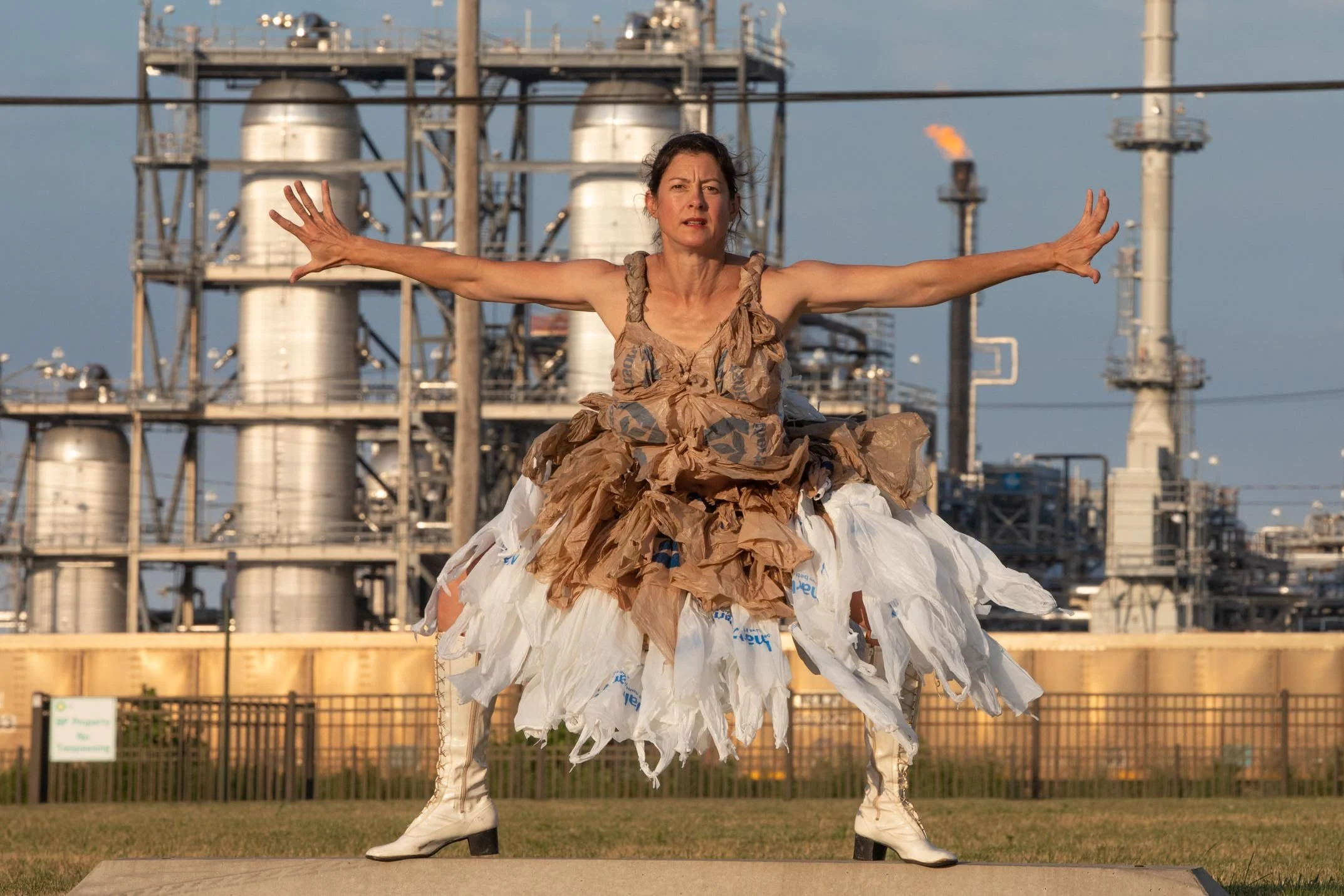Here are some excerpts from the Climate Check podcast interview with Lynn Neuman on arts, activism and the significance of the artichoke.
“I often hear from people: ‘the climate crisis is so huge, where do I even start?’ And we understand from looking at behavioral science that overwhelming crises can cause paralysis. So, movement is activating. If you get moving, you’re doing something. And you’ve proven to yourself that you can do something. In terms of climate action, you actually just have to start doing one thing. And it kind of doesn’t even matter where you start. But you need to start.”
“It’s very easy to start one habit. Bring your own (water) bottle. Bring your own bag. And then you can do the next thing… You start with one thing and then you start compounding it. You just have to start with one thing.”
“One of the goals (in making interdisciplinary eco art) is to educate people and bring them into contact with a reality that they might not want to face. So that’s in part why we do site specific work and why we used upcycled or recycled materials. Because you’re like, ‘oh, this is real’… It’s hard to escape the realities of climate change but it’s very easy to ignore. But when you come into contact with it, suddenly you’re faced with a reality. Now, using it as an artistic practice or as a performance softens it a little bit. It’s not a lecture or it’s not someone didactically shoving this information down your throat where you feel super guilty. So you have your own kind of epiphany or reality.”
Photo of Director Lynn Neuman taken by Robin Michaels with a fossil fuel refinery looming in the background.
“I made plastic bag costumes and we’ve danced in them for years. And it took 3 years to get the (plastic bag) legislation passed in New York State. And that’s when I started to embed simple political activism into my performances and work because I realized I have an audience that’s already on my side. How do I move this platform forward?”
“The artichoke is a metaphor for all of the layers and textures that go into the work that I do. So, I make dances— I think they’re beautiful at the heart of them. And at the center of an artichoke is a sweet heart. But to get to all of the research and things that I do around the work that I do— it’s a little bit thorny.”
“Within my projects or performances, I try to offer a vision of hope and of the future that shows an interconnectedness and possibility. It’s like: ‘we can get through this’. There is a way forward.”
Listen to the entire Climate Check podcast, Plastics in Motion, here.


